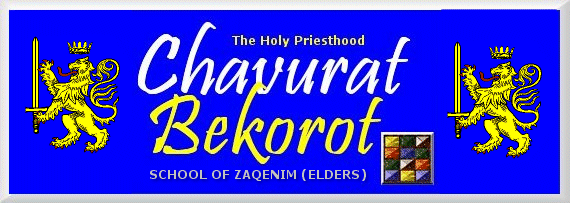RESOURCES
5-144000
A
B
C
D
E
F
G
H
I
J
K
L
M
N
O
P
Q
R
S
T
U
V
W
Y
Z
|
|


11
OLD TESTAMENT ESSAYS
 Bringing the Kingship to Full Flower: Saul Compared with David
(2 May 1983)
Bringing the Kingship to Full Flower: Saul Compared with David
(2 May 1983)
by Christopher C. Warren, M.A.(Oxon)

The coronation of Saul as King of Israel by Samuel marked the beginning of the end of the Tribal Confrederacy and the beginning of the Israelite Monarchy. Yahweh had never intended the old Confederacy to end as this was the model society provided for under the Mosaic Law but changing political conditions and the general rebellious attitude of the Israelites themselves inevitably brought about a kingdom. But the Confederacy did not die over night and it seems likely that the conservative element in Israelite society exerted a considerable influence right up until the death of Saul at Gilboa.
Israel had never known court life with all its trappings tho0ugh no doubt merchants and emmissaries had seen the kind of spleandor that attended the kings of the neighbouring states like Philistia, Phoenicia, and the like. Saul was a man of the land, in reality a rustic king, with an unpretentious court at Gibeah. He was from one of the smallest of the 12 tribed Confederacy, Benjamin, and this no doubt made him acceptable as a king over the rest of the tribes. There was little to no centralised government, the autonomy of the tribes being continued in the fashion of the Confederacy. Yet Saul was a king and Israel was a Kingdom; the tribes were united. Unlike the period of the judges when only a handful of the tribes would unite to repell a potential or actual invader, in Saul's day all twelve tribes rallied around his standard and in times of national emergency.
Why did Saul fail to bring the kingship to full flower? I suggest a number of reasons:
- 1. He was unstable personally; he let his jealousies get the better of him, diverting time and effort from the kingdom-building process in his obsessive lust to kill David;
- 2. He was conservative at heart, still very much of the Confederate spirit, and in no hurry to centralise power as in the surrounding nations; his appeal was charismatic, not hereditary; and
- 3. He was very likely a Baal worshipper as well as a Yahweh worshipper. This is evidenced by his naming his children after Baal and his rebellion against Yahweh's prophet, Samuel, first in illegally offering sacrifices, and secondly in failing to observe strict herem in the war against the Amalekites.
By contrast, David was a strict Yahweh worshipper, falling only later in his career in the muder of Uriah the Hittite and adultery against his wife Bathsheba. David brought the Israelite kingship to full flower in two major ways:
- 1. He conquered neighbouring states like Moab, Ammon, Philistia, Aram and various Canaanite city states, thus creating military and political stability in Canaan; and
- 2. He built a new capital, Jerusalem, which provided for the beginnings of centralisation.
He was a king with a kingdom located in a Royal City in which was placed Israel's most sacred relic, the Ark of the Covenant. Israel's identity as a nation, therefore, came about both by political and military unification and the fusing of Israel's religious tradition with the state itself. Under Saul, 'church and state' were separate, the 'church' being governed by Samuel and the state by Saul. These came closer together under David, who as king took on priestly functions nothwithstanding the presence of a Levitical Priesthood.
Quite what is meant by 'bringing the kingship to full flower' is hard to determine. If by full flower, stability is meant, David certainly did this. The Israelite Kingdom was not like the kingdoms of the surrounding nations until the time of Solomon. David led by virtue of 'divine charisma'; like Saul he was a man of the land and of the people. He was not a hereditary monarch. I personally do not think David brought the kingship to full flower even though he established the precendent for it. I would say that Solomon realised the full-flowering of the kingship with Saul and David setting the process in motion, but this is an area open to dispute. David established a court along the lines of the Egyptian one and began a system of taxation to pay for it. Yet the tribes continued to exist in their own frontiers, still retaining a certain degree of autonomy through not to the extent that they did under Saul.
By the time David died the old Confederacy had breathed its last breath. Under Saul a curious mixture of the Confederacy and Monarchy existed, a kind of proto-monarchy. Once the people rebelled against the sovereignty of Yahweh and demanded a monarchy with a man at the head (using the corrupt behaviour of Samuel's sons as an excuse), the kingship began to flower step-by-step. It was in full bloom when Solomon came to the throne and ended in Israel becoming like the other nations.



This page was created on 4 August 2009
Updated on 4 August 2009
Copyright © 1987-2009 NCCG - All Rights Reserved

|
|


